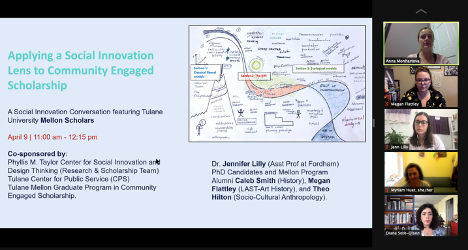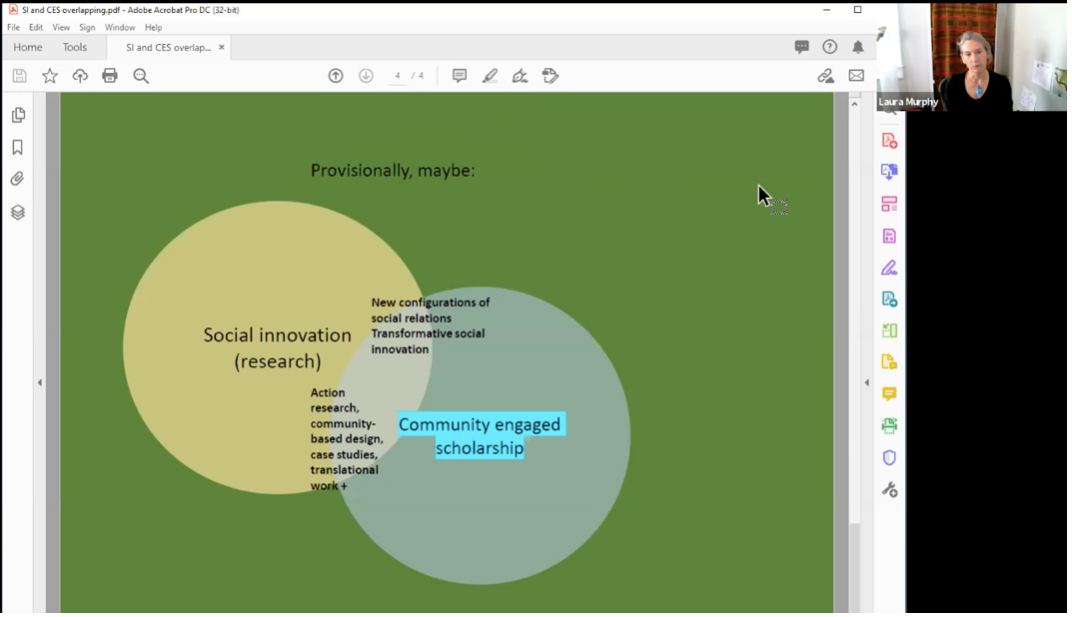
Taylor Center Co-Organizes Conversation on Applying a Social Innovation Lens to Community-Engaged Scholarship
On Friday, April 9, 2021, the Taylor Center partnered with the Tulane Center for Public Service and the Tulane University Mellon Program for Community-Engaged Scholarship to host a panel of Mellon Program alumni to discuss the intersection of social innovation with community-engaged scholarship (CES) work. This event was part of the Taylor Center Research and Scholarship team’s Social Innovation Conversations Series.
The panelists were:
- Theo Hilton, doctoral student in Anthropology
- Caleb Smith, doctoral student in History
- Megan Flattley, doctoral student in Art History and Latin American Studies
- Moderator: Jenn Lilly, Tulane CCC alum and Assistant Professor at Fordham University
The panelists described their Mellon projects in which they worked with New Orleans community organizations, such as Jane Place Neighborhood Sustainability Initiative (Theo) and Ashé Cultural Arts Center (Caleb). Dr. Lilly (also a Taylor Center Fast 48 design thinking workshop alum) described how she used design thinking in the participatory research of her dissertation project with Latinx youth through Puentes. Current Taylor Graduate Assistant for Research & Scholarship Megan Flattley described the importance of adopting a systems thinking approach to art museum operations aiming for the development of innovative, community-driven curatorial practices.
The panelists further discussed how the Mellon Program – and its model of community-engaged scholarship – has pushed the development of their academic research and how they distribute their research findings in innovative ways. They described some of the difficulties in pursuing this work within the academy, such as: developing and managing relationships and power dynamics, dealing with the expectations of a traditional Ph.D. or tenure-track timeline, and how the institutional support of the Mellon Program has helped them to navigate such difficulties.
Discussant Dr. Laura Murphy presented a Venn diagram highlighting possible intersections between social innovation research and community-engaged scholarship, seen as methodologies for changemaking.

To learn more about the intersections of CES and SI, read our blog post.
One provocative question that catalyzed a rich conversation was around funding for CES and for social innovation initiatives in an era of elite philanthropy, where wealth (e.g., from Mellon, Taylor, Ford, Rockefeller) arises from environmentally and socially harmful industries and is being diffused in ways that might perpetuate inequalities. In response, the panelists discussed the source of funding for these initiatives and how to create change within often inequitable funding structures.
To learn more, you can watch the recording of the discussion online.